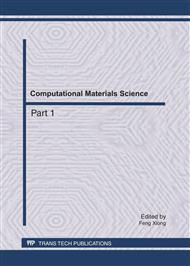p.1121
p.1127
p.1132
p.1138
p.1144
p.1148
p.1152
p.1157
p.1163
Research of a Novel P2P Search Algorithm Based on Small-World Phenomena
Abstract:
This paper proposes a novel breadth-first search algorithm and deals with the problem of duplicate web pages removing and page ranking by the principle of Small World phenomena. The features of algorithm in this paper are as follows: 1) it proposes the Unit Tree-based Breadth-First Search Algorithm and performs a qualitative analysis and simulated calculation of the performance, with the results demonstrating that the algorithm in this paper reduces the number of neighboring nodes to which messages shall be forwarded and redundant messages as compared with traditional Breath-First Search algorithm and Random Breath-First Search algorithm; 2) it proposes a solution to the problem of duplicate web pages removing and page ranking by Small World phenomena, with the results demonstrating that the method in this paper can effectively bring processing workload, waiting time and the pointless network bandwidth consumption of source node searching into balance.
Info:
Periodical:
Pages:
1144-1147
Citation:
Online since:
July 2011
Authors:
Price:
Сopyright:
© 2011 Trans Tech Publications Ltd. All Rights Reserved
Share:
Citation:


